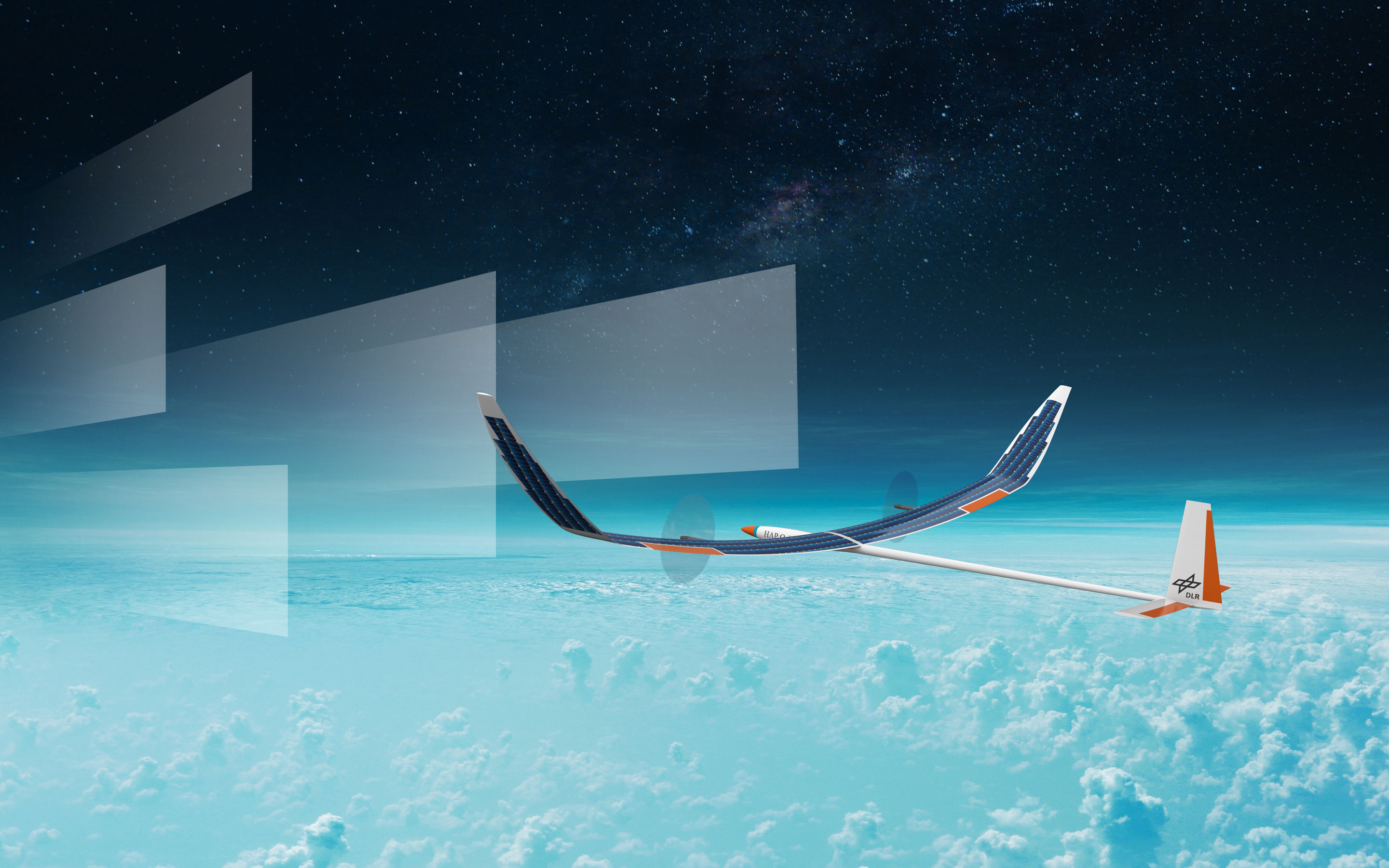Sector in brief
Bavaria is home to leading global systems companies and is the location for numerous suppliers and technical service providers. Manufacturers of special equipment are based here, as are leading international scientific and educational institutions. The Bavarian state government provides unique framework conditions for the industry with a wide range of support measures. As part of the High-Tech Agenda Plus (HTA+) for example, Bavaria will provide additional funding for the aerospace sector in the coming years, among other things to promote disruptive innovations as well as technological advancements. In this way, the Bavarian State Ministry of Economic Affairs, Regional Development and Energy is making an important contribution to promoting innovation in the aerospace industry throughout Germany.
![[Translate to English:] [Translate to English:]](https://ik.imagekit.io/sgliwi1izsz/_processed_/2/e/csm_Invest_In_Bavaria2192_df380e9f0f.jpg?tr=w-1024 1024w, https://ik.imagekit.io/sgliwi1izsz/_processed_/2/e/csm_Invest_In_Bavaria2192_df380e9f0f.jpg?tr=w-1280 1280w, https://ik.imagekit.io/sgliwi1izsz/_processed_/2/e/csm_Invest_In_Bavaria2192_df380e9f0f.jpg?tr=w-1536 1536w, https://ik.imagekit.io/sgliwi1izsz/_processed_/2/e/csm_Invest_In_Bavaria2192_df380e9f0f.jpg?tr=w-1920 1920w)
Katharina Kees
Investor Services Mobility
+49 89 24210-7506 katharina.kees@invest-in-bavaria.com
Rosenheimer Str. 143C
81671 Munich
The main focus is on the construction of aircraft, aircraft engines, helicopters and spacecraft. In addition, satellite navigation represents another core area. Around 30,000 engineers, technicians and skilled workers in the aerospace industry – more than one-third of the workforce in this sector nationwide – are employed in Bavaria at more than 450 companies. They generate annual sales of around 11 billion euros.
Aerospace & Satnav industry figures
60.00
Satnav companies in Bavaria
30000.00
employees in this industry
11.00
billion euros in sales by aerospace manufacturing companies
450.00
aerospace companies in Bavaria
Training in cutting-edge technologies is a top priority in Bavaria. There are numerous first-class training facilities available for the next generation of experts in the aerospace sector in Bavaria: The Technical University of Munich, Ludwig Maximilian University Munich, Universität Erlangen-Nürnberg the University of Würzburg the Bundeswehr University Neubiberg and many other universities provide excellent learning conditions for young professionals.
Founded in the spring of 2018, the Faculty of Aeronautics, Astronautics and Geodesy (LRG) at the Technical University of Munich relies on the high-tech location Ottobrunn/Taufkirchen. It is the undisputed leader in Germany and already ranks among the elite internationally. With more than 50 professorships, it is set to become the largest of its kind in Europe and the heart of a “Space Valley” in the Munich metropolitan region. It is expected to account for around 50 percent of the total university-based aerospace research output in Germany. It is funded by the Bavarian Ministry of Science.
In addition, the Bavarian Ministry of Economic Affairs supports the Ludwig Bölkow Campus (LBC), an international hub for trend-setting innovation, new ways of thinking and practical training in the field of aerospace. The LBC pools the scientific and technical expertise of university, non-university and industry-related research and brings it together in close proximity on the campus grounds at the Taufkirchen location. Munich Aerospace e.V. and Ludwig Bölkow Campus GmbH work together at the LBC. Munich Aerospace e.V. represents the scientific partners, consisting of the Technical University of Munich, the Bundeswehr University Munich, the University of Applied Sciences Munich, Bauhaus Luftfahrt e.V. and the German Aerospace Centre. The industrial partners Airbus, Siemens and IABG are also organised in Ludwig Bölkow Campus GmbH.
A broadly diversified research infrastructure offers outstanding framework conditions for industrial aerospace in Bavaria. One important research institution is the German Aerospace Centre (DLR), which has sites in Oberpfaffenhofen, Weilheim and Augsburg. World-renowned facilities such as the German Space Operations Centre ( GSOC), the Galileo Control Centre (GCC) or the Galileo Competence Centre are located in Oberpfaffenhofen. In addition, scientists in the field of aerospace are conducting research at numerous universities in Bavaria, at some Fraunhofer Institutes in Erlangen, Garching near Munich and Augsburg, at the Max Planck Institutes for Astrophysics and for Extraterrestrial Physics, at the European Southern Observatory (ESO) as well as at the Bavarian Ministry of Economic Affairs-sponsored think tank “Bauhaus Luftfahrt” based in Taufkirchen. In addition, major companies in the industry have located large research centres in Bavaria.
Bavaria offers the perfect structures for networking aerospace companies with research, politics and other companies as well as with potential customers in Germany and abroad. For example, bavAIRia e.V. has been funded by the Bavarian Ministry of Economic Affairs within the framework of the Cluster Offensive since 2006. BavAIRia aims to achieve further competitive advantages for Bavaria by dovetailing research, industry and government agencies even more closely. Other clusters in the 17 Bavarian clusters in total are also of importance to the aerospace industry, such as New Materials, Information & Communication Technology, Power Electronics, Mechatronics & Automation or Sensors.
In 2018, the Ingolstadt region joined the European Urban Air Mobility Initiative. The aim of the initiative is to investigate innovative air traffic concepts in model regions. In addition to the Ingolstadt region, the German model regions include the Aachen region, the city of Hamburg and the North Hesse/Bad Hersfeld region. The European initiative was discontinued at the beginning of 2021. The Holistic Air Mobility Initiative Bavaria ties in with these activities with the aim of establishing a comprehensive innovation approach by industry, universities and non-university research institutions for an Air Mobility research network in Bavaria. An initial funding call for this was published on 20 April 2021. Funding is provided for research and development projects that investigate opportunities and development paths for the increased integration of innovative, civilian, airborne modes of transportation into urban and regional traffic for freight and passenger transport.
Bavaria aims to provide an ideal business environment for young, innovative companies in the aerospace sector and for entrepreneurs with innovative ideas for using space technologies in other areas. Since 2009, Bavaria has therefore been supporting the Business Incubation Centre (ESA BIC Bavaria) at the European Space Agency (ESA), a space-focused business start-up centre. The ESA BIC programme in Bavaria is the most successful space incubation programme in Europe. In the period from 2009 to 2020, the Bavarian Ministry of Economic Affairs and the ESA have supported 144 start-up companies in the process. These companies had created around 3,500 high-tech jobs in Bavaria by 2020 and are therefore an important driver for the development of the “new space economy” in Germany.
The operator of the ESA BIC Bavaria is the Oberpfaffenhofen Application Centre (AZO), which also organises the “European Satellite Navigation Competition” and “Copernicus Masters” ideas competitions.
The brigkAIR digital start-up centre launched in 2020 is a contact point for start-ups working on solutions in the fields of “unmanned aerial vehicles” and “three-dimensional mobility”. In addition to an international network (start-ups, established companies, science, investors), infrastructures (offices, hangar, flight test corridors) are being set up in Manching and coaching, challenges and accelerator programmes are being offered. Bavaria is funding brigkAIR with around 5 million euros; it is part of the Initiative Gründerland Bayern.
Do you want to enter the German or European market with your aerospace company? We are happy to support you throughout the entire establishment process and beyond. With the right location, right promotion and right contacts. Contact us! The international team at Invest in Bavaria is looking forward to hearing from you.
News
Aktuell liegen keine Veranstaltungen vor
Location map
Companies in the Bavarian aerospace & satnav sector









